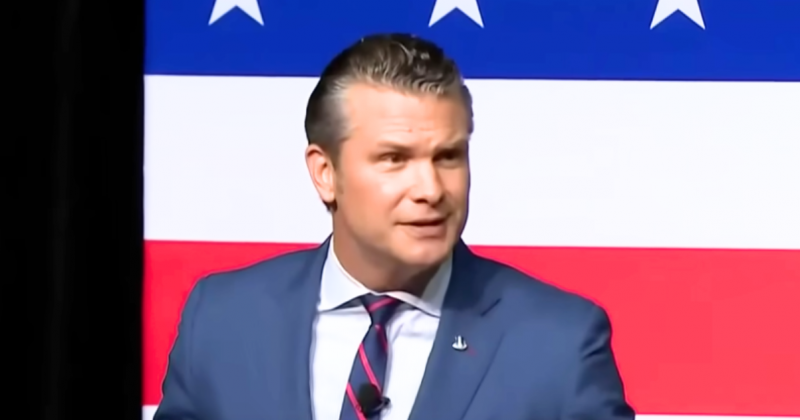Pete Hegseth has been hit by a major leak from inside the Pentagon at the same time he is moving to crack down on whistleblowers.
The disclosure has exposed a set of sweeping measures that would require senior military leaders, civilian staff and contractors to submit to lie detector tests and sign new nondisclosure agreements.
The proposed policy would force top generals and thousands of employees within the Department of War to undergo random polygraph examinations, according to internal documents obtained by the Washington Post.
Those who refuse could face punishment or dismissal.
In addition, the plan requires every individual to sign an NDA that prohibits the release of any “non–public information” without authorization.
The secretary of war has been seeking to impose greater discipline after repeated leaks and internal disputes have plagued his department.
Officials describe the plan as an effort to silence critics and curb backstabbing inside Pentagon ranks.
Reports have indicated that the scope of the new rules would be unprecedented in size and reach, affecting thousands of personnel inside headquarters.
A draft memo written by Deputy Defense Secretary Steve Feinberg laid out the terms of the NDA.
It states that all employees, regardless of rank or position, would be barred from sharing information outside official channels.
The language emphasizes that disclosure without approval or through an improper process would be a violation of the agreement.
In addition to new NDAs, the Pentagon is preparing to introduce random polygraph testing.
Another document describes the policy as having no limit on who could be selected, meaning that generals, administrators, aides and assistants alike could be asked to take a lie detector test at any time.
The move represents a sharp break from past practice.
Previous administrations did not implement routine lie detector testing for Pentagon staff, making the measure unique.
Officials say it represents a tightening of information control across the Department of War.
Hegseth outlined his broader vision for stricter oversight during a meeting at Quantico on Tuesday morning.
In front of generals and admirals from across the country, he unveiled new policies designed to reinforce discipline under what he calls an “America First” approach.
During the session, he declared his intention to overhaul the Inspector General’s office and the Pentagon’s equal employment opportunity office.
He argued that both have been “weaponized” through repeated and anonymous complaints that he says damage reputations and delay careers.
“No more anonymous complaints, no more repeat complaints, smearing reputations, no more endless waiting or side–tracking careers,” Hegseth said to senior military leaders at the meeting.
He promised that a follow-up briefing would be scheduled soon to provide additional details.
The proposed NDA and polygraph requirements have not yet been finalized or approved. However, according to Daily Mail reporting that dubbed the news “dystopian,” the leak of their existence has already stirred controversy within the building and across Washington.
A source close to Hegseth defended the new rules in comments to the outlet.
The source said that the language for reporters was intended only to reinforce expectations that sensitive information must not be released improperly.
They added that soliciting private details from government employees could endanger the department.
Deputy Secretary Feinberg echoed that reasoning in his memo.
“The protection of sensitive information is paramount to our national security, the safety of our warfighters, and the preservation of critical decision space for our senior leaders,” he wrote.
He warned that failure to comply with the NDA requirements could lead to disciplinary action.
Earlier this year, Patrick Weaver, one of Hegseth’s advisers, raised concerns that his team was being targeted in a leak hunt.
Weaver warned that his staff might be compelled to take lie detector tests.

